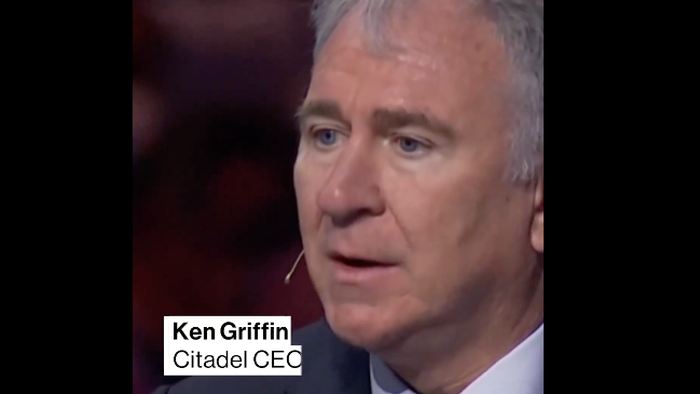At the recent Future Investment Initiative summit in Saudi Arabia, a prominent discussion featured Citadel CEO Ken Griffin and Blackstone CEO Steve Schwarzman sharing their insights regarding the impending U.S. presidential election, which is just days away. Griffin expressed a strong belief in Donald Trump’s favorable chances of reclaiming the presidency, stating, “The expectation today is that Donald Trump will win the White House.” He underscored the prevailing atmosphere of uncertainty in the political landscape, characterizing the election as akin to a “coin toss,” where Trump emerges as the frontrunner yet the outcome remains uncertain. Griffin’s comments reflect his support for candidates who align with conservative ideals, highlighting a broader sentiment among some investors regarding the potential direction of U.S. policy under a Trump administration.
Schwarzman contributed to the discourse by indicating that, although he refrained from making definitive predictions about the election, he recognized Trump’s familiarity with the presidential role. He asserted that Trump possesses a “better base of knowledge” regarding the presidency, suggesting that this experience could translate into effective governance. This perspective from leading financial executives signifies an emotional undercurrent connected to Trump’s past tenure in office, where they believe his knowledge may allow him to navigate the complexities of policy-making more adeptly, thereby creating expectations of stability for the markets.
Further fueling the conversation, Goldman Sachs CEO David Solomon highlighted the potential economic ramifications of the election, indicating that forthcoming policy decisions will have significant impacts on future market trajectories. Solomon’s commentary illustrates the heightened anticipation in financial circles surrounding the election, with traders and investors beginning to position themselves according to potential outcomes. Market trends have already reflected this sentiment, as evidenced by Goldman’s report detailing that their Republican Policy pair has seen gains, while the Democratic counterpart has lagged. As the political climate intensifies, financial analysts and market participants are keenly aware of how the results could influence their investment strategies.
Polling data remains crucial to understanding the electoral context, and recent aggregates from RealClearPolitics show Trump holding a slight lead over his opponent, Kamala Harris. The importance of public opinion and polling outcomes is underscored by influential figures like Elon Musk, who has vocally endorsed Trump, lauding him as “the greatest capitalist in the history of the United States.” Musk’s rousing endorsement aligns with the sentiments expressed by Griffin and Schwarzman, suggesting that leading figures in the business community are seeking a return to assertive leadership amidst prevailing uncertainties under the current Biden-Harris administration. Enthusiasm from figures like Musk indicates a desire from certain sectors for a shift that promises more predictable economic policies.
Amidst this backdrop of looming electoral decision-making, broader discussions have emerged regarding the media landscape and its evolving influence on public opinion. Observers noted a notable shifting dynamic where traditional media outlets are losing control over narrative formation as they contend with independent entities emerging within the media sphere. This shift reflects increasing skepticism toward mainstream sources, with the public increasingly turning to alternative channels for political insight and election forecasts. The rise of prediction markets and unconventional polling has been particularly highlighted as tools reshaping the way political narratives are constructed and perceived, indicating a potential evolution in campaign strategies moving forward.
In conclusion, as the U.S. presidential election approaches, leading voices from the financial and entrepreneurial sectors are placing their bets on Trump, anticipating a return to conservative policies that align with their expectations for economic growth and stability. The collective sentiments of influential figures like Griffin, Schwarzman, and Musk demonstrate a palpable desire for a decisive shift in leadership in response to the complexities they attribute to the current administration. This election not only has immediate political consequences but also broader implications for market strategies, public trust in media narratives, and the political landscape’s evolution in years to come.

